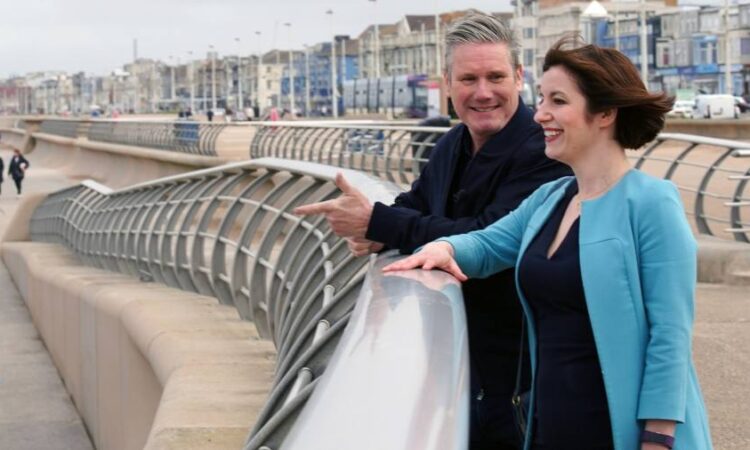
Sir Keir Starmer has vowed to end the “tax and spend” policies of previous Labour leaders as he dropped his former promise of free tuition for all students in England ahead of Thursday’s local elections.
The Labour leader, who first announced a review of the party’s policy on tuition fees in January, promised a “fairer solution” but told the BBC on Tuesday that he would not set out details until later this month.
Starmer is hoping this week’s council polls in England will show that his party is on the brink of seizing power nationally, with a general election expected next year.
The Labour leader is trying to focus his campaign on the cost of living as energy bills, mortgages, rent and food prices hit record levels.
Starmer called on the government to impose a tougher windfall tax on oil and gas companies, as BP announced $5bn in profits for the first three months of the year. He said Labour would use such a levy to freeze council tax for a year.
Although the government has introduced a multi billion-pound tax on the industry, the policy includes a generous investment allowance, which Labour has pledged to remove.
In an effort to address the country’s housing crisis, Starmer also pledged to restore mandatory home-building targets — currently 300,000 a year — which were scrapped in December by the ruling Conservative party. Over 1mn households are on the waiting list for social homes, according to homelessness charity Shelter
The cap on tuition fees was raised sharply by the Conservative-Lib Dem coalition a decade ago and is currently £9,250 a year.
Starmer’s options for changing this include reducing the cap or increasing the financial support available to low-income students — for example through more grants. Another could be changing how students repay money borrowed from the government to fund their studies, possibly through a graduate tax.
A report on education by former cabinet minister David Blunkett last year said only that Labour should ensure “any policy change on university tuition fees in England supports and incentivises flexible, part-time study”.
Labour’s original proposal for dropping tuition fees would have cost £9.5bn, funded by raising income tax on higher earners.
But Starmer has dropped a pledge he made in 2020, when he was running for the leadership, to lift income tax for the top 5 per cent of earners.
Asked on Tuesday morning whether Labour would tax the rich, Starmer replied that his instincts were to “grow the economy” rather than impose further tax rises.
“We have the highest tax burden before since the second world war . . . what we’ve had from this government is tax rises upon tax rises upon tax rises, if they’ve proved one thing it is that their high tax low growth economy doesn’t work,” he said.
“I accept that’s a different answer to what former Labour leaders would say, they’d always go straight to tax and spend.”
One senior Tory accused the Labour leader of dodging fundamental questions: “It’s easy for Keir to talk about growing the economy, that was Liz Truss’s answer to almost every question and we know how that ended,” he said.
The Conservatives have the most to lose in this round of elections, defending about 40 per cent of all council seats that are up for grabs.
Election experts Colin Rallings and Michael Thrasher, associate members of Nuffield College, Oxford, have predicted the Tories could lose 1,000 seats on May 4, were there to be a 6 per cent swing to Labour.
Labour hopes to make inroads in the north and Midlands and the Liberal Democrats are confident of winning seats in the south, but both opposition parties played down the possibility of the Tories losing 1,000 seats.
Ed Davey, leader of the Liberal Democrats, will use the final day of local election campaigning to visit Eastbourne, Lewes and Windsor — areas of southern England where the party wants to make gains from the Conservatives.






